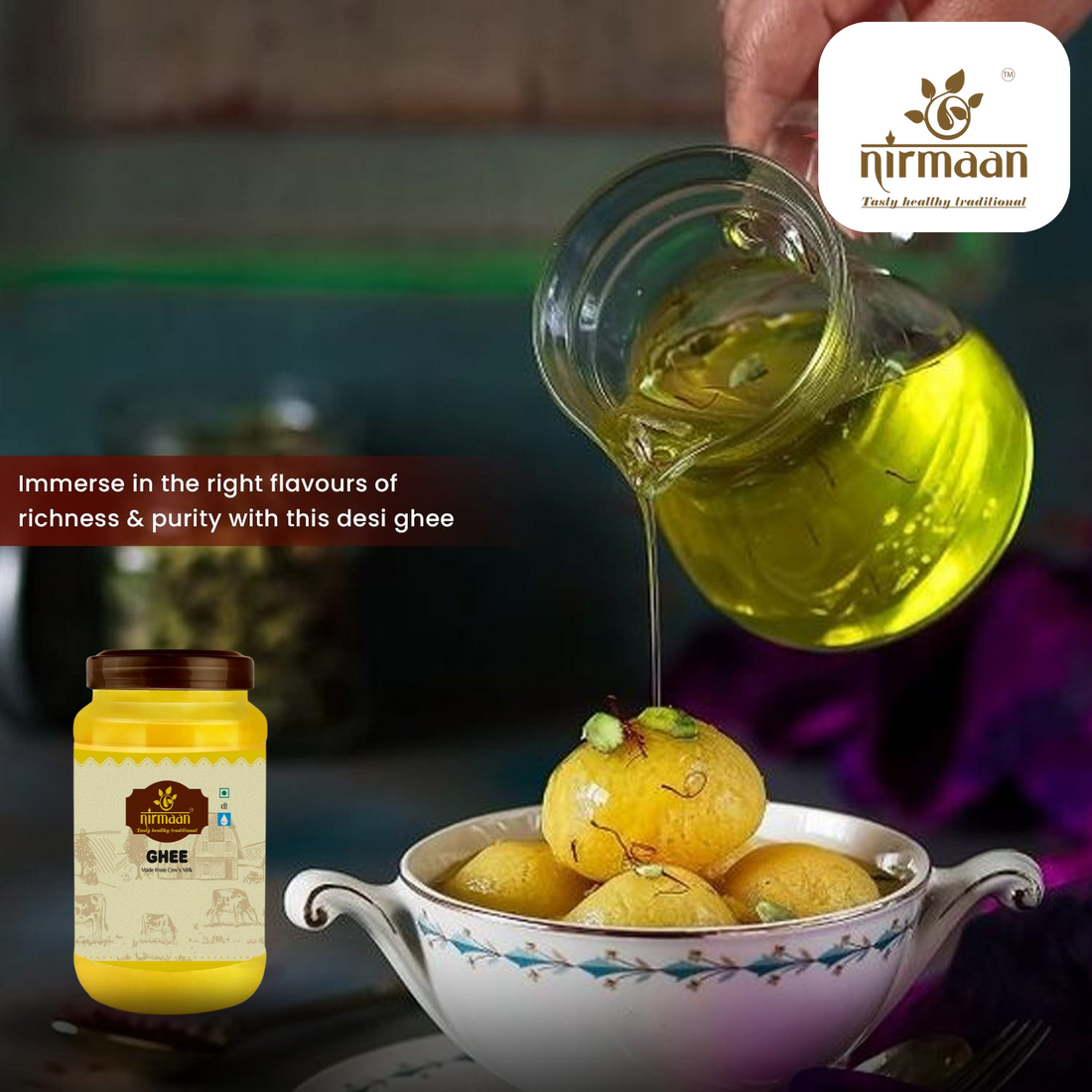
Ghee vs. Coconut Oil: Which One Should You Use for Cooking?
Hardik SutariaShare
Ghee vs. Coconut Oil: Which One Should You Use for Cooking?
When it comes to healthy cooking fats, ghee and coconut oil are two of the most debated options. Both have ancient roots, powerful health benefits, and loyal fans. But which one is better for your kitchen — and your health?
Let’s explore the key differences and help you make the best choice for your lifestyle and cooking needs.
🥄 What Is Ghee?
Ghee is a form of clarified butter made by simmering butter to remove water and milk solids, leaving behind pure golden fat. Used in Indian households for centuries, ghee is known for its rich, nutty flavor and deep Ayurvedic value.
At Nirmaan Ghee, we create ghee the traditional way — slowly simmered from pure cow’s milk for optimal taste and nutrition.
🥥 What Is Coconut Oil?
Coconut oil is extracted from the meat of mature coconuts. It has become popular for its tropical aroma, high saturated fat content, and various health claims ranging from improved skin to better metabolism.
There are two main types:
- Virgin coconut oil: Unrefined, cold-pressed
- Refined coconut oil: Processed and more neutral in taste
🔬 Ghee vs. Coconut Oil: A Nutritional Comparison
| Feature | Ghee | Coconut Oil |
|---|---|---|
| Smoke Point | ~250°C (482°F) | ~177°C (350°F) |
| Lactose-Free | ✅ Yes | ✅ Yes |
| Fat Content | Rich in saturated fats and butyric acid | High in medium-chain triglycerides (MCTs) |
| Flavor | Nutty, aromatic | Mildly sweet, tropical |
| Shelf Life | Long, no refrigeration needed | Long, but can go rancid if exposed to light/heat |
| Vitamins | A, D, E, K (fat-soluble) | No vitamins unless fortified |
| Cooking Use | Best for frying, roasting, sautéing | Great for baking, light sautéing |
🧠 Health Benefits: How Do They Compare?
✅ Ghee:
- Supports gut health with butyrate
- Boosts immunity and brain function
- Anti-inflammatory and ideal for those sensitive to dairy
- Ayurvedically considered “satvic” – promotes clarity and balance
✅ Coconut Oil:
- Contains MCTs, which may help with quick energy and metabolism
- May support heart health in moderation
- Antibacterial and antifungal properties
- Often used topically for skin and hair as well
🍳 Which One Should You Use for Cooking?
Choose Ghee if:
- You’re doing high-heat cooking (tadka, frying, roasting)
- You want a more nutritious, vitamin-rich option
- You’re following an Ayurvedic, keto, or Paleo lifestyle
- You love Indian or traditional cooking
Choose Coconut Oil if:
- You’re baking or cooking at moderate temperatures
- You like a tropical flavor in food
- You use oil for skin/hair care as well
- You’re experimenting with MCT-rich diets
🌿 Final Verdict: Ghee or Coconut Oil?
Both ghee and coconut oil offer unique health benefits — but for most Indian cooking styles and high-heat dishes, ghee is the winner in terms of flavor, stability, and nutrition.
At Nirmaan Ghee, we believe in honoring tradition while supporting modern health. Our handcrafted ghee gives you the best of both worlds — rich taste and real nourishment.
🛒 Ready to Cook Smarter?
Switch to the goodness of pure cow ghee — slow-cooked, shelf-stable, and incredibly flavorful.